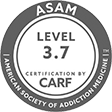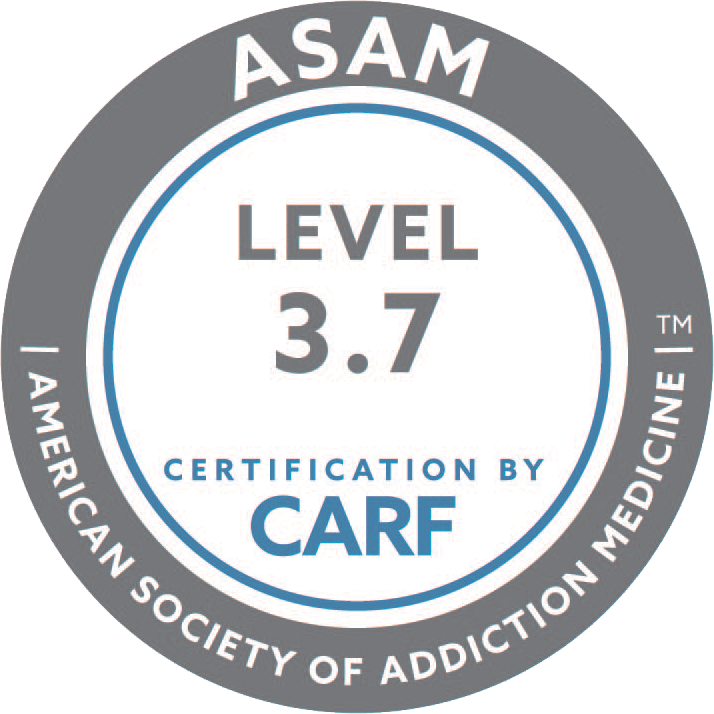Accreditation and licensing are two crucial factors to consider when researching drug rehab centers in Los Angeles. These two terms may seem similar, but they have distinct meanings that can greatly impact the quality and effectiveness of a rehab center. In this article, we will delve into the importance of accreditation and licensing for rehab centers, specifically in the city of Los Angeles. Whether you or a loved one is seeking treatment for addiction, it is essential to understand the significance of these credentials in order to find a reputable and trustworthy rehab center. So let’s explore the world of accreditation and licensing in the realm of drug rehab centers in Los Angeles.
First, let’s define what accreditation and licensing mean in the context of drug rehab centers. Accreditation is a process by which an independent organization evaluates the quality and standards of a treatment facility. A licensed rehab center has met all state and federal requirements to operate and provide treatment services. This ensures that the facility meets certain standards of care and safety.
Now, let’s dive into the different types of treatment options available at accredited and licensed rehab centers in Los Angeles. Inpatient rehab involves staying at the facility for a designated period of time, typically 30-90 days. This type of treatment provides 24/7 care and support, as well as a structured environment to focus on recovery.
Outpatient rehab allows individuals to receive treatment while still living at home. This may include attending therapy sessions, support groups, and other activities at the rehab center.
Detox programs are also available at many accredited and licensed rehab centers to help individuals safely withdraw from drugs or alcohol.
In addition to these treatment options, ongoing support through therapy and support groups is crucial for maintaining sobriety after completing treatment at a rehab center. Therapy can help individuals address underlying issues that may contribute to their addiction, while support groups provide a sense of community and accountability.
It’s also important to note that accreditation and licensing are not a one-time process. Rehab centers must maintain their accreditation and license by meeting ongoing standards and regulations. This ensures that they continue to provide quality care for their clients.
Overall, choosing an accredited and licensed rehab center in Los Angeles is crucial for finding reputable treatment options. By understanding the different types of treatment available and the importance of accreditation and licensing, you can make an informed decision for yourself or your loved one’s recovery journey.
What is Accreditation and Licensing?
Accreditation and licensing are two important factors to consider when choosing a drug rehab center in Los Angeles. These two terms may sound similar, but they actually have different meanings and purposes.
Accreditation refers to the process of evaluating a rehab center’s facilities, staff qualifications, and treatment programs by an external organization. This evaluation ensures that the facility meets certain standards of quality and safety. A reputable rehab center should have accreditation from a recognized organization, such as the Joint Commission or the Commission on Accreditation of Rehabilitation Facilities (CARF).
Licensing, on the other hand, is a legal requirement for rehab centers to operate. It is issued by the state government and ensures that the facility meets all necessary regulations and has qualified staff to provide treatment. It also ensures that the facility follows ethical standards and protects the rights of its clients.
Both accreditation and licensing are important because they provide assurance that the rehab center has met certain standards of care and has undergone regular evaluations. This gives clients and their families peace of mind knowing that they are receiving treatment from a reputable and safe facility.
Understanding the basics
It’s important to note that not all rehab centers have accreditation or licensing. Some may choose not to undergo the process or may have lost their accreditation or license due to violations or non-compliance. It’s crucial to research and verify a rehab center’s accreditation and licensing status before enrolling in their programs.
In conclusion, accreditation and licensing are crucial components to consider when researching drug rehab centers in Los Angeles. They ensure that the facility meets certain standards of care, providing clients with quality treatment and peace of mind. Always make sure to thoroughly research a facility’s accreditation and licensing status before making a decision.
In conclusion, accreditation and licensing play a vital role in finding a reputable rehab center in Los Angeles. By choosing an accredited and licensed facility, you can have peace of mind knowing that you or your loved one will receive quality care and support during the recovery process. Remember to do thorough research and ask questions when considering a rehab center to ensure it meets your needs and standards.
Dr. Brooke Gilbertsen is a licensed clinical psychologist who has been working in the field of mental health since 2011 and specifically co-occurring disorders since 2013. Brooke brings her knowledge, experience, and compassion to support clients and their loved ones on their journey toward recovery, health, and holistic healing. Brooke has experience working with a wide range of diagnoses from severe mental illness and personality disorders to depression and anxiety, and believes the underlying cause must be treated in order for freedom from addiction to occur. Brooke treats the whole person, considering mental health diagnoses, genetics, neuropsychology, the context of the family and environment, social relationships, trauma and loss, vulnerability, shame, and self-worth. Brooke applies a wide range of evidenced-based modalities, incorporating mindfulness, spirituality, and psychodynamic approaches to assist clients in the healing process. Brooke is passionate about helping her patients discover the best version of themselves, with a renewed sense of freedom, purpose, and meaning. The model is to build a life that you want to show up to, and don’t need a vacation from.
Brooke completed her B.A. in Psychology in 2008 from San Diego State University. She obtained her M.A. Degree in Clinical Psychology in 2013 from Argosy University, and received her Doctorate in Psychology in 2016 from The Chicago School of Professional Psychology. She is the author of The Impact of Mindfulness on the Quality of Life of Cancer Patients, published in 2017. Brooke has been the keynote speaker for lectures on addiction, and is passionate about helping others find their way as they take the courageous journey toward self-growth.










